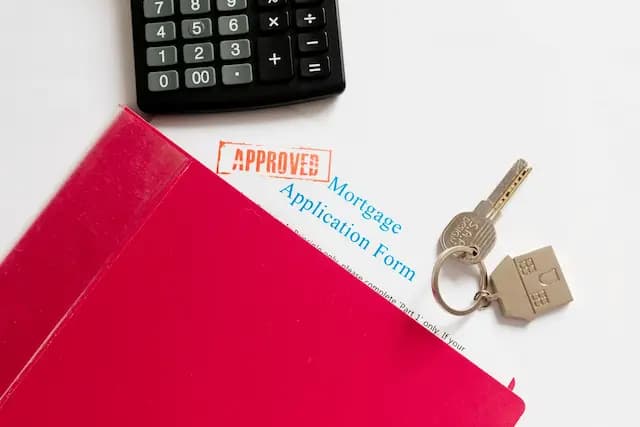SelfEmployed
Get A Mortgage For Self Employed In BC By Asim Ali Mortgage Broker
Are you self-employed in BC and looking to get a mortgage? Look no further than Asim Ali! We understand that the process of finding the right mortgage for self employed in BC can be daunting, and that’s why our team is here to help you every step of the way. With our years of experience in the field, you can trust us to get you the best mortgage rates available. Contact us today to learn more about how we can help make your mortgage process hassle-free.
Understanding Mortgage For Self-Employed
A mortgage for self-employed individuals, also known as a self-employed mortgage or stated income mortgage, is a specialized financing option designed to cater to the unique needs and financial circumstances of self-employed professionals and entrepreneurs. Unlike traditional mortgages, where income verification is straightforward, self-employed individuals often face more complex income documentation requirements. This can include tax returns, business financial statements, and other relevant documents that showcase their financial stability and ability to repay a mortgage.

Difference Between Mortgage for Self-Employed vs. Traditional Mortgage
Understanding the key differences between mortgages for self-employed individuals and traditional mortgages is vital for making an informed decision. Here’s a breakdown of these distinctions:

Income Documentation
Self-Employed Mortgage:
Self-employed borrowers must provide a range of financial documents, including tax returns, bank statements, and business financials, to verify their income stability.
Traditional Mortgage:
Traditional mortgage applicants typically rely on W-2 forms and pay stubs as primary income documentation.
Down Payment Requirements
Self-Employed Mortgage:
Self-employed borrowers may need to provide a higher down payment, often exceeding 10% of the property’s purchase price.
Traditional Mortgage:
Traditional mortgage borrowers may qualify for down payments as low as 3-5%, depending on the loan program.
Interest Rates
Self-Employed Mortgage:
Interest rates for self employed mortgages may be slightly higher due to perceived risk.
Traditional Mortgage:
Traditional mortgage rates are often lower, especially for borrowers with strong credit.
Credit Score Importance
Self-Employed Mortgage:
Maintaining a good credit score is crucial for self-employed borrowers, as lenders rely heavily on credit history.
Traditional Mortgage:
While credit score is important for all borrowers, traditional mortgage applicants may have more flexibility if their income documentation is strong.
Loan Approval Process
Self-Employed Mortgage:
The approval process for self-employed mortgages can be more detailed and time-consuming due to extensive income verification.
Traditional Mortgage:
Traditional mortgage applicants may experience a smoother and faster approval process with less documentation required.

How To Get A Self-Employed Mortgage
Getting loans for self employed individuals in British Columbia involves a specific set of steps and considerations. Here’s our guide on how to get a mortgage as a self-employed individual in BC:
Prepare Your Financial Documentation
Getting a mortgage when you are self-employed in British Columbia (BC) can be a bit more complex than for salaried individuals, but it’s entirely possible with the right preparation and documentation. We want to ensure that you have a stable income and can afford the mortgage payments. Here’s a step-by-step guide on how to prepare your financial documentation:
Proof of Income:
- Income Tax Returns: Prepare at least two to three years of personal income tax returns (T1 Generals) with all schedules and attachments. Lenders will typically look for consistency in your income over this period.
- Business Tax Returns: If you own a business, provide your business tax returns (T2 Corporations) for the same years. This is especially important if your business income is a significant part of your overall income.
- Notice of Assessments (NOA): Include your NOAs from the Canada Revenue Agency (CRA) for the last two to three years. This document confirms that you’ve filed your taxes and may show any outstanding taxes owed.
- Financial Statements: If you have audited or reviewed financial statements for your business, provide those as well. Lenders may want to see these for larger loans.


Business Documentation:
If you own a business, provide copies of your business registration, licenses, and any contracts or agreements that confirm your business’s existence and income. Two to three years of personal tax returns (T1 General Income Tax Returns) to verify your self-employment income. Business financial statements, including income statements and balance sheets, demonstrate your business’s financial health. Business bank statements showing several months of cash flow, income deposits, and expenses to verify the financial stability of your business.
Personal Identification:
Government-issued photo identification, such as a driver’s license or passport, to verify your identity. Additional proof of identification may be required by the lender to ensure the accuracy of your application. These identification documents help confirm your identity and are essential for the mortgage approval process.
Additional Documentation:
We also request proof of business ownership, including Articles of Incorporation or business registration documents, and contracts or client agreements to substantiate income claims. Lastly, a detailed explanation letter addressing any unusual financial circumstances or gaps in income may be necessary to provide context to the application.

Hassle-Free Mortgage Process for Self-Employed Individuals
Now that you have a basic understanding of what a mortgage for self-employed entails, let's explore how the process works:
Consultation
Your journey begins with a consultation with our expert mortgage broker. During this initial meeting, we’ll discuss your financial situation, homeownership goals, and any specific challenges you may face as a self-employed borrower.
Documentation
To secure a mortgage for self-employed individuals, you’ll need to provide comprehensive documentation, including:
Tax Returns:
Typically, lenders will require two to three years of personal and business tax returns to assess your income stability.
Bank Statements:
Your personal and business bank statements will be scrutinized to evaluate your cash flow and financial health.
Business Financials:
Profit and loss statements, balance sheets, and other business financial records may also be requested.


Loan Conditions
Self-employed borrowers are required to provide more extensive documentation compared to traditional employees. This may include tax returns, bank statements, business financials, and other financial records. Be prepared to provide a comprehensive financial history.
To mitigate the perceived risk associated with self-employed borrowers, lenders may require a larger down payment. While traditional mortgages may allow down payments as low as 3-5%, self-employed borrowers may need to put down 10% or more.
Due to the perceived higher risk, interest rates for mortgages for self-employed individuals may be slightly higher than those offered to traditional borrowers. However, working with the best mortgage broker for self employed like Asim Ali can help you secure competitive rates.
Maintaining a healthy credit score is crucial for self-employed borrowers. Lenders will scrutinize your credit history to assess your creditworthiness. Ensure your credit score is in good standing before applying for a self-employed mortgage.
Lenders will closely examine your income stability over a significant period. This is why providing multiple years of financial documentation is essential. Demonstrating consistent income can increase your chances of loan approval.
Tips for improving your chances of getting approved for a self-employed mortgage
Securing a mortgage as a self-employed individual can be challenging, but there are several tips you can follow to improve your chances of approval. Here are some key tips to keep in mind:
1
Keep your financial records organized:
As a self-employed individual, it’s essential to keep your financial records up-to-date and organized. This includes your bank statements, tax returns, and business financial statements. Lenders want to see consistent income and evidence that you can repay the loan, so having accurate and organized financial records will make the application process smoother.
2
Minimize debt and improve credit score:
Lenders consider your debt-to-income ratio and credit score when assessing your mortgage application. Pay off as much debt as possible before applying for a mortgage and focus on improving your credit score. This can be done by paying bills on time, reducing credit card balances, and avoiding new debt.
3
Save for a larger down payment:
While it’s not always easy, saving for a larger down payment can greatly improve your chances of getting approved for a self-employed mortgage. A larger down payment reduces the loan-to-value ratio, making you a lower risk to lenders.
4
Maintain stable income:
Lenders want to see a stable income, even if it fluctuates as a self-employed individual. Showing consistent income over a period of time will help build trust with lenders. Avoid making major changes to your business or income streams leading up to your mortgage application.
Why Work With Asim Ali?
Choosing the right mortgage broker can make all the difference when it comes to securing the best mortgage for self employed in BC. Here are several compelling reasons to partner with Asim Ali:
Asim Ali brings extensive experience and specialized knowledge in the world of self employed mortgages. He understands the unique challenges and opportunities that self-employed borrowers face, allowing him to tailor solutions that suit your specific needs.
One of the advantages of working with Asim Ali is access to a vast network of lenders, including banks, credit unions, and private lenders. This means you’ll have a wide range of mortgage options to choose from, ensuring you find the one that best suits your financial situation.
Asim Ali takes a client-centric approach, providing personalized guidance throughout the entire mortgage process. He’ll work closely with you to understand your goals and financial circumstances, offering solutions that align with your objectives.
Navigating the mortgage application process as a self-employed borrower can be complex. Asim Ali simplifies this process, helping you gather the necessary documentation and guiding you through each step to ensure a smooth and efficient experience.
With Asim Ali’s assistance, you’ll have access to competitive mortgage rates tailored to self-employed borrowers. He will leverage his industry connections to secure the most favorable terms for your loan.
Asim Ali is committed to your long-term financial success. Beyond helping you secure a mortgage, he’ll provide valuable insights and strategies to manage your mortgage effectively and achieve your homeownership goals.
In the End:
Navigating the world of mortgages for self-employed individuals in BC can be challenging, but with the right guidance and expertise, you can achieve your homeownership dreams. Asim Ali Mortgage Brokerage is here to support you every step of the way, from understanding the nuances of self-employed mortgages to securing a loan with favorable terms.
If you’re ready to embark on your journey to homeownership as a self-employed professional in British Columbia, contact us today. We’re dedicated to helping you find the best mortgage solution that suits your unique financial situation and empowers you to achieve your homeownership goals.